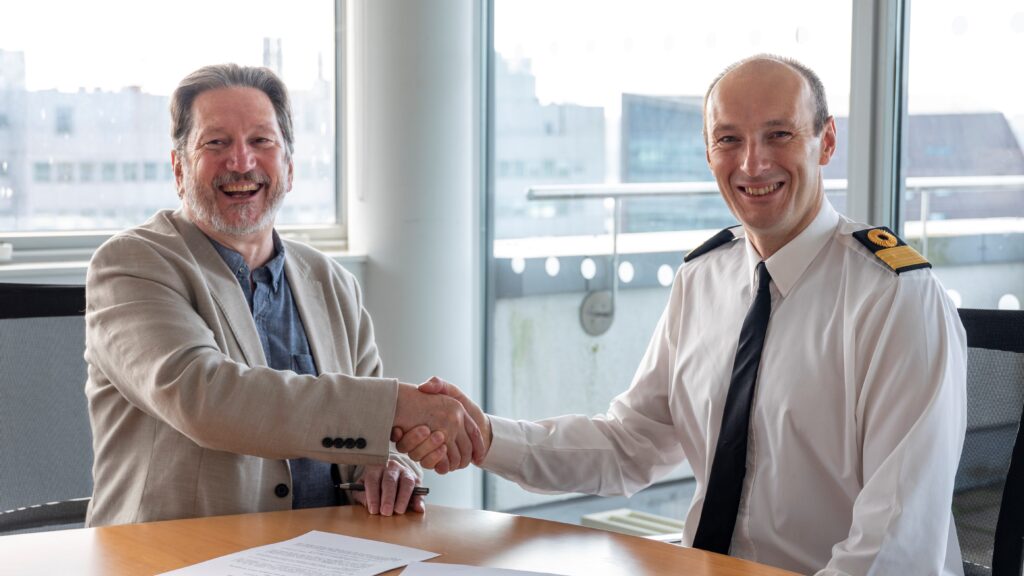Plymouth University and Royal Navy extend research partnership

The University of Plymouth and the Royal Navy have announced an extension and expansion of their research partnership. Initially launched in 2021, this collaboration has been renewed for at least another three years – aiming to widen its scope and impact.
While the partnership’s initial focus was on marine autonomy and maritime cybersecurity, the renewed agreement casts a broader net. The research will now include floating offshore wind (FLOW) and Artificial Intelligence (AI).
This collaboration has already yielded significant achievements, such as the development and deployment of several uncrewed vessels and enhanced resilience against potential cyber security incidents.
Central to the extended partnership is the continuation of sharing facilities and equipment between both parties, such as the Marine Station, the Cyber-SHIP Lab and the Maritime Simulation Laboratories. It will also utilise the Smart Sound Plymouth, the UK’s premier proving area for designing, testing and developing cutting-edge products and services. This resource-sharing approach ensures the latest academic insights can be rapidly applied to real-world maritime challenges.
In 2022, the Univeristy of Plymouth also partnered with marine technology company Sonardyne to drive innovation within the marine robotic and autonomous systems sectors, including testing and evaluating the uncrewed systems loaned by the Royal Navy.
The extended agreement was signed by Professor Kevin Jones, deputy vice chancellor (research and innovation) at the university, and Commodore Marcus Rose, deputy director of underwater battlespace capability at the Royal Navy.
Professor Jones says: “The University and Royal Navy have a proud history of collaboration. In recent years, that has grown in scope and significance, with the development of research and student projects directly aligned to global security and the health of the ocean. Our extended and expanded partnership will enable us to build on those successes, uniting our world-leading expertise and technologies in areas that are of critical importance on a regional, national and global scale.”
Commodore Rose adds: “Navy Develop looks forward to continuing our close work with the University’s high calibre staff and student cohort and reaping the mutual benefits of this extended agreement. As the pace of change accelerates, our collaboration with the University of Plymouth is a valuable enabler for Navy Develop. Having formally worked together since 2021, we have collectively achieved some notable successes in surface and sub-surface autonomy and as we both look to assess and embed a whole host of new emerging maritime technologies, I anticipate more success in the future.”
Further opportunities are outlined by the extended partnership, including new prospects for PhDs, exploring AI applications in battlefield intelligence and naval decision-making – an area particularly ripe for investment and development, according to First Sea Lord Admiral Sir Ben Key.
Image courtesy of Plymouth University.












